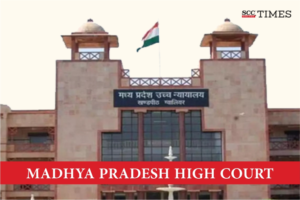Madhya Pradesh High Court: In a Public Interest Litigation filed by a former MLA and Social Activist seeking direction to the State of Madhya Pradesh to table the “Justice Jain Commission” report before the legislative assembly, a division bench of Vivek Rusia* and Binod Kumar Dwivedi, JJ., dismissed the writ petition and held that no enforceable right existed to compel the respondent to submit the report after the lapse of 6 — 7 years.
In June 2017, farmers in Mandsaur protested due to government policies and price issues, leading to police firing, which resulted in death of five farmers. The incident drew media attention, and a commission headed by Justice J.K. Jain was formed to investigate the circumstances, including whether the force used was justified. The State Government received the Commission’s report in June 2018, but did not present it before the Legislature as mandated under Section 3(4) of the Commission of Enquiry Act, 1952 which requires the report and action taken memorandum be presented within six months of submission.
The petitioner argued that the Commission’s report, being of public importance, should be tabled to ensure transparency and accountability. While relying on Gujarat Urja Vikash Nigam Ltd. v. Evssar Power Ltd., (2008) 4 SCC 755 and Fazalur Rehman v. State of U.P., (1999) 7 SCC 683, the petitioner contended the language of Section 3(4) of the Commission of Enquiry Act is mandatory and casts an obligation on the State to publish the report. It was contended that delayed publication hinders public knowledge of the administrative response to significant incidents.
However, the State argued that the recommendations of the Commission are not enforceable through a writ petition. The State relied T.T. Antony v. State of Kerala, (2001) 6 SCC 181 and V. Narayana Rao v. State of A.P., AIR 1987 AP 53, and contended that the reports serve to inform the government, which can choose legislative or administrative actions based on the report without being legally bound to present it. The State also highlighted that the Act lacks specific consequences for non-compliance with Section 3(4) of the Commission of Enquiry Act.
The Court reviewed the statutory language of Section 3(4) and relevant case law. The Court acknowledged that while the statute uses “shall,” implying a mandatory tone, the Commission of Enquiry Act lacks provisions enforcing consequences for delayed tabling. The Court observed that legislative members or opposition parties could raise the issue within the legislative forum if necessary.
The Court acknowledged the significance of the report but observed that the purpose of the Commission was to provide recommendations rather than enforce actions. The Court further noted that the Commission’s purpose was primarily fact-finding and advisory for future policy considerations.
The Court opined that the legislative provision to present reports is directive, and members of the Legislature could raise questions on the delay within the house itself. The Court noted the absence of any penal provision for non-compliance with Section 3(4) of the Commission of Enquiry Act and held that issuing a writ would be ineffective.
The Court dismissed the PIL and held that it was inappropriate to issue a writ compelling the State to present the report, particularly after the lapse of 6 — 7 years since the report was submitted.
[Paras Saklecha v. State of M.P., 2024 SCC OnLine MP 6791, Decided on 14-10-2024]
*Judgment by Justice Vivek Rusia
Advocates who appeared in this case :
Shri Pratyush Mishra, Counsel for the Petitioner
Shri Anand Soni, Additional Advocate General, Counsel for the Respondent/State

